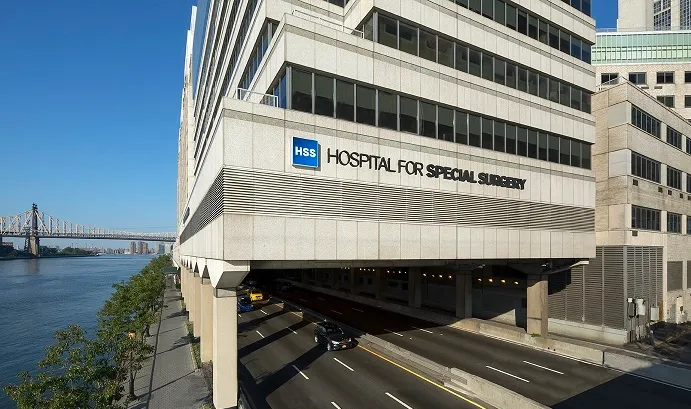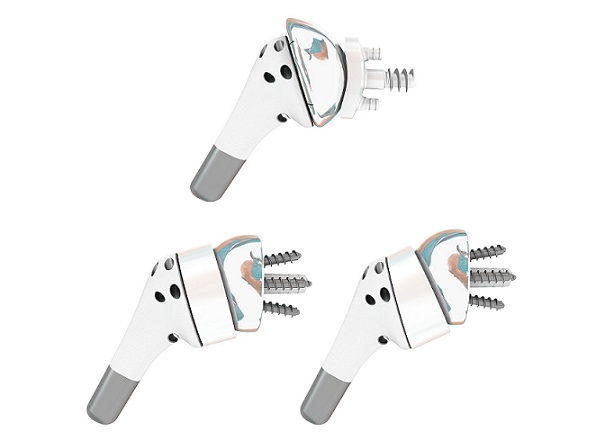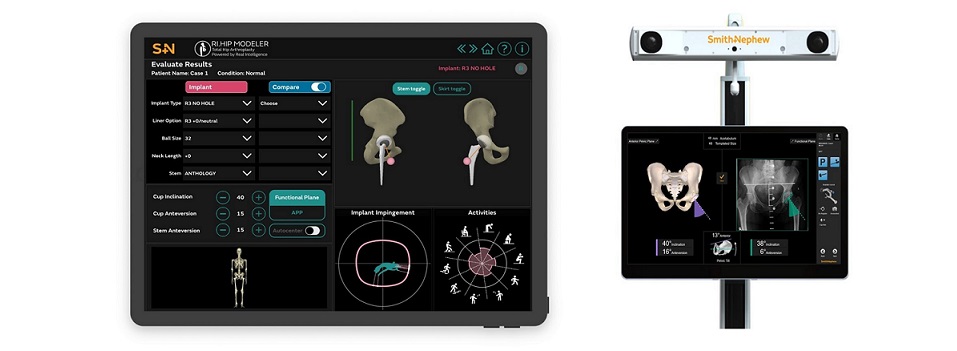New surgical implant is the first innovation in ACL tear treatment in 30 years
NEW YORK, June 1, 2022 /PRNewswire/ — Two sports medicine surgeons at Hospital for Special Surgery (HSS) in New York City are among the first in the nation to use an innovative new implant for the treatment of anterior cruciate ligament (ACL) tears, which was recently approved by the U.S. Food and Drug Administration.
The BEAR® Implant is the first innovation in ACL tear treatment in three decades. It represents a vast change from ACL reconstruction, the current standard of care treatment for ACL tears, by enabling the body to heal its own ACL.
“The shift from reconstruction to restoration is a significant development in ACL treatment,” said Sabrina M. Strickland, MD, sports medicine surgeon at HSS. “This novel treatment provides patients with an alternative option that can help them get back to what they love to do.”
Approximately 300,000 ACL tears occur each year, making it one of the most common knee injuries in the United States. As a result, ACL reconstruction is performed in people of all ages – from adolescents to middle-aged people.
The current standard of care involves the surgical removal of the torn ACL followed by reconstruction with either with an autograft (a healthy tendon from the patient) or an allograft (a tendon from a donor). An autograft requires two surgical sites since the surgeon needs to remove a healthy tendon from the knee or thigh in order to complete the reconstruction.
In contrast, the BEAR Implant acts as a bridge to help both ends of the torn ACL heal together. There is no need for a second surgical wound site to harvest healthy tendon. Instead, the surgeon injects a small amount of the patient’s own blood into the implant and through a tiny incision inserts the device between the torn ends of the ACL.
The novel combination of the implant and the patient’s blood enables the body to heal the torn ends of the ACL, while helping the surgeon avoid the need to alter the ACL’s native attachment to the femur and tibia. After approximately eight weeks, the BEAR® Implant is reabsorbed by the body.
Additionally, the technique is much less invasive than a reconstruction. “In the operating room, we don’t have to drill bone tunnels or harvest healthy tendon, or use donor tendon, which is a huge upside for patients,” explained Dr. Strickland. In every other respect, however, the surgery is similar in technique to a conventional reconstruction, she noted. Full recovery and return to sport are similar to ACL reconstruction, too.
Another advantage of the new approach concerns the potential for longer-lasting success. “Every part of the knee is there for a reason. So, if you need to harvest a healthy hamstring to reconstruct the ACL, you cause weakness in the previously strong hamstrings,” added Dr. Strickland. “With this method, we aren’t weakening any healthy part of the patient’s knee – and that’s so important for patients’ success.”
So far, Dr. Strickland and fellow sports medicine surgeon Andreas H. Gomoll, MD, are performing ACL surgeries with this implant for appropriate patients at HSS.
The implant was granted De Novo Approval by the FDA for patients over 14 years old who have a full ACL rupture. Appropriate patients have an ACL stump attached to the tibia. The BEAR Implant must be implanted within 50 days after injury.
About HSS
HSS is the world’s leading academic medical center focused on musculoskeletal health. At its core is Hospital for Special Surgery, nationally ranked No. 1 in orthopedics (for the 12th consecutive year), No. 4 in rheumatology by U.S. News & World Report (2021-2022), and the best pediatric orthopedic hospital in NY, NJ and CT by U.S. News & World Report “Best Children’s Hospitals” list (2021-2022). In a survey of medical professionals in more than 20 countries by Newsweek, HSS is ranked world #1 in orthopedics for a second consecutive year (2022). Founded in 1863, the Hospital has the lowest complication and readmission rates in the nation for orthopedics, and among the lowest infection rates. HSS was the first in New York State to receive Magnet Recognition for Excellence in Nursing Service from the American Nurses Credentialing Center five consecutive times. An affiliate of Weill Cornell Medical College, HSS has a main campus in New York City and facilities in New Jersey, Connecticut and in the Long Island and Westchester County regions of New York State, as well as in Florida. In addition to patient care, HSS leads the field in research, innovation and education. The HSS Research Institute comprises 20 laboratories and 300 staff members focused on leading the advancement of musculoskeletal health through prevention of degeneration, tissue repair and tissue regeneration. The HSS Innovation Institute works to realize the potential of new drugs, therapeutics and devices. The HSS Education Institute is a trusted leader in advancing musculoskeletal knowledge and research for physicians, nurses, allied health professionals, academic trainees, and consumers in more than 145 countries. The institution is collaborating with medical centers and other organizations to advance the quality and value of musculoskeletal care and to make world-class HSS care more widely accessible nationally and internationally. www.hss.edu.
SOURCE Hospital for Special Surgery








